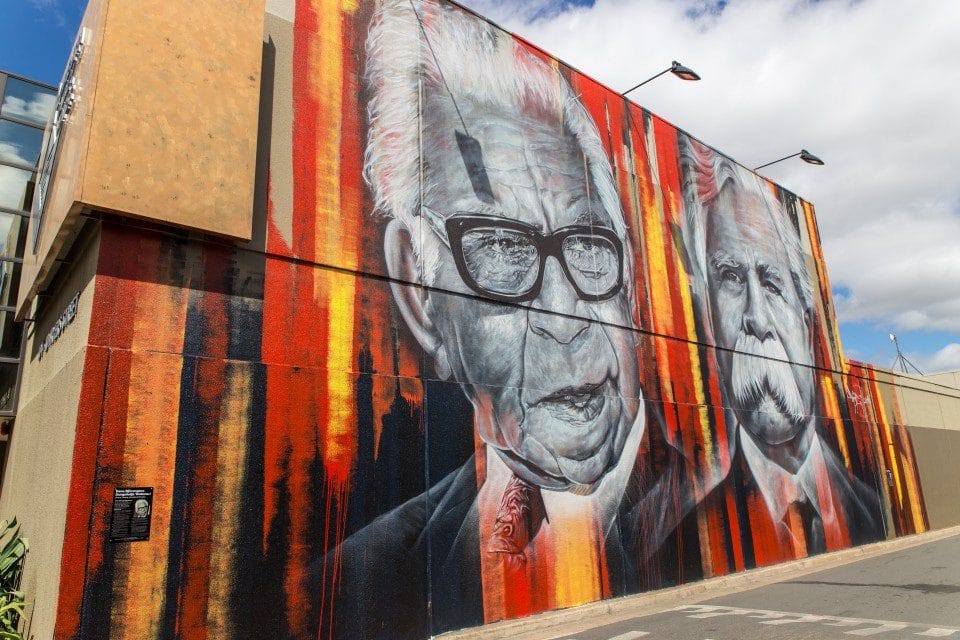Celebrating Indigenous culture but …

All Australians are encouraged to participate in NAIDOC Week which will be held from July 3 to 10.
This year’s theme Get up! Stand up! Show up! encourages all of us to ‘champion institutional, structural, collaborative, and cooperative change while celebrating those who have already driven and led change in Aboriginal and Torres Strait Islander communities over generations.’
While the festivities rightly focus on the history, culture and achievements of indigenous Australians, a cloud hangs over the ongoing welfare of Aboriginal youth. The Greater Shepparton region in central Victoria is one place where youth suicide has been highlighted with several young people taking their own lives in recent times.
The latest Australian Institute of Health and Welfare data, says Aboriginal Australians die from suicide at twice the rate of non-Indigenous. And Greater Shepparton has some of the highest Indigenous suicide rates in regional Victoria, according to a 2018-2021 Coroners Court of Victoria report.
Aunty Joyce Cooper of Yorta Yorta country says many of these young people are crying out and suffering from a loss of culture and community. “Sometimes I worry who’s going to be next,” she said. “It’s a ripple effect. Because no-one is listening to our young people. No-one is listening to their stories, she told ABC News.
With the crisis worsening in Shepparton several years ago the Indigenous postvention group Thirrili was asked to help. Providing emotional and practical support to families affected by suicide and other trauma, Thirrili found that there was widespread systemic racism and bullying, and a widespread loss of culture amongst the young.
Image: A wall mural by the artist Adnate in Fryers Street Shepparton depicts William Cooper and Pastor Sir Douglas Nicholls, both indigenous leaders who made significant contributions to not just the region but Australia more widely.
Also, Goulburn Valley-based Aldara Yenara (Lead the Way) – aimed at enhancing Aboriginal cultural knowledge – was established in 2018. One of its initiatives has included cultural-empowerment camps for young people, known as Galnya Lotjpa or Strong Talk.
The Aldara Yenara website states, “Our Youth programs facilitate opportunities to learn how to become not only strong and respectful youth but strong and respectful community members. This has been taught traditionally for over 60,000 years. Molwana is a Yorta Yorta phrase meaning ‘Young Man’ and Dhatjiba translates as ‘Young Sister’. Our Galnya-Lotjba or ‘Strong Talk’ mentoring programs are 12-month, intensive cultural learning, strengthening and connection programs for boys and girls aged 8- 17 years.”
Camps are held over three days in Barmah, a site of Yorta Yorta cultural heritage on the banks of the Dungala or Murray River. Children are taught language, art and dance, and rituals such as smoking ceremonies and Dreamtime stories. The organisers say the camps have a profound effect on those who attend, claiming they are transformed by the experience.
It is Aboriginal practice to have elders involved, so Aunty Joyce and her husband Uncle Boots participate in the camps. Their involvement is personal as three of their teenage nephews tragically committed suicide 20 years ago.
“Most young people are struggling with identity,” Uncle Boots told ABC News. “Some of them know they’re Aboriginal, but they don’t know what it really means.”
While the camps have proved successful, Aldara Yenara requires ongoing funding from the state and federal governments. At present they receive yearly, one-off funding which is not ideal.
Information gleaned from ABC News, National Indigenous Australians Agency, Thirrili and Aldara Yenara.
We encourage you to share and use this material on your own website. However, when using materials from Majellan Media’s website, please include the following in your citation: Sourced from www.majellan.medi


